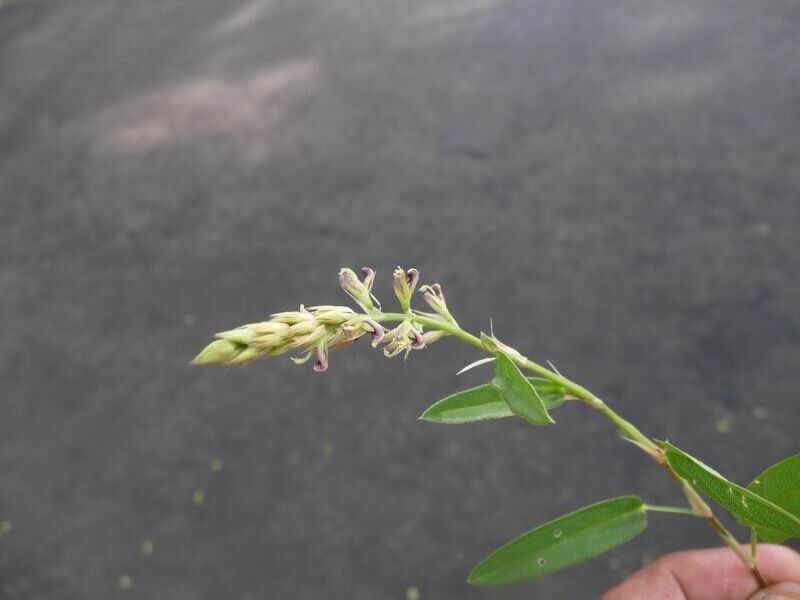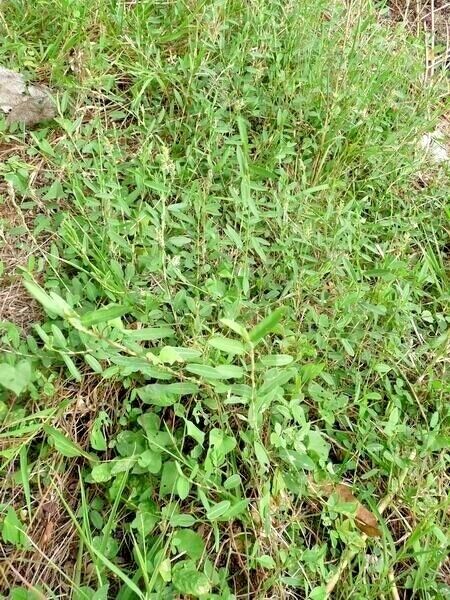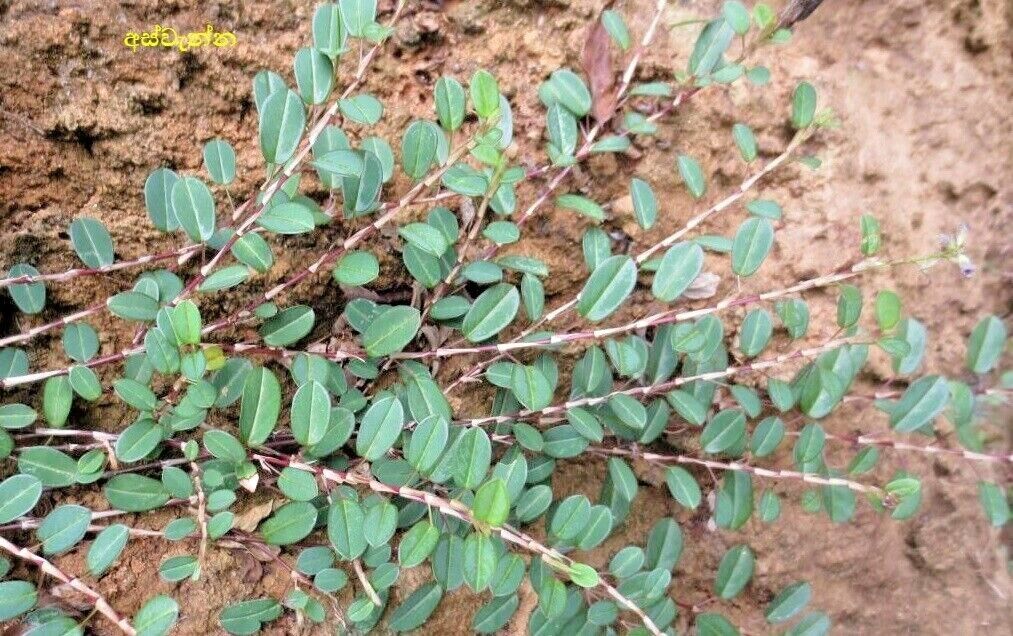Blog
Medina: Uncovering the Jamaican Vitality Secret Hidden in a Humble Clover

In the lush, vibrant landscape of Jamaica, the roots of traditional herbalism run deep. For centuries, the island’s inhabitants have turned to “bush teas” and potent tonics to maintain their strength, health, and vigor. And in the pantheon of Jamaican folk remedies, few plants are as revered for vitality as a humble, sprawling herb known as Medina.
But this legendary plant has a secret identity. Travel outside the Caribbean, and you’ll find it growing in pastures and fields around the world, from the Americas to Asia. There, it’s known by a more agricultural name: Alyce Clover. In Sri Lanka, we know it as Aswenna (අස්වැන්න).

How can one plant be both a simple field clover for livestock and a legendary vitality tonic for humans?
This is the fascinating story of Alysicarpus vaginalis. Today, we’re setting aside its identity as a forage crop to explore the powerful, life-enhancing secrets of Medina, the Jamaican powerhouse.
A Plant of Two Reputations: Forage vs. Folk Power
To truly appreciate Medina, you have to understand its two very different worlds.
- Alyce Clover – The Farmer’s Friend: Globally, botanists and farmers know Alysicarpus vaginalis as Alyce Clover. It’s a nitrogen-fixing legume, prized for its ability to enrich the soil and serve as a high-protein forage crop for cattle and horses. Its agricultural value is well-documented, making it a staple in tropical pasture management.
- Medina – The People’s Powerhouse: In Jamaica, the agricultural reputation of this plant is completely overshadowed by its role in human health. Here, Medina is a celebrated “strong back” herb, a key ingredient in tonics and teas designed to build the body and enhance vigor. It’s a cornerstone of the island’s vibrant “bush medicine” tradition.
Unpacking the Legend: Why Medina is Jamaica’s Go-To Vitality Herb
When you hear Jamaicans talk about Medina, the conversation almost always turns to one thing: vitality. It’s a plant deeply associated with strength, stamina, and particularly, male sexual health. This reputation isn’t new; it’s built on generations of traditional knowledge.
A Natural Aphrodisiac and Libido Booster ❤️🔥
This is Medina’s most famous and sought-after benefit. In Jamaican folk medicine, it is the quintessential herb for men seeking to boost their libido and enhance sexual performance. It’s traditionally brewed into a tea or included in complex tonic preparations with other herbs. It is believed to work by improving blood flow and invigorating the system, leading to increased stamina and desire. It’s not a quick fix, but rather a nourishing tonic that is said to build strength over time.
Boosting Overall Strength and Stamina
The “strong back” moniker given to herbs like Medina isn’t just about sexual health. It refers to overall physical power and endurance. Medina is traditionally consumed by both men and women as a general tonic to combat fatigue, increase energy levels, and build resilience. Laborers and athletes have historically used it to help their bodies cope with physical strain and recover more effectively.
Supporting Healthy Circulation
Many of Medina’s purported benefits are traditionally linked to its ability to “cleanse the blood” and support good circulation. From a modern perspective, this makes sense. Healthy blood flow is essential for delivering oxygen and nutrients to every part of the body, including muscles and reproductive organs. By supporting the circulatory system, Medina is believed to enhance energy, stamina, and overall function.
More Than a One-Trick Pony: Other Traditional Uses
While its reputation as a vitality booster is legendary in the Caribbean, the plant’s uses in other parts of the world, like Asia, reveal a broader spectrum of benefits. In regions where it’s known as Aswenna and by other local names, its applications include:
- Soothing the Digestive System: Traditional preparations of the plant have been used to address abdominal pain, indigestion, and other minor digestive complaints.
- A Remedy for Respiratory Relief: In some folk traditions, a tea made from the leaves and roots is used to help soothe coughs and clear congestion.
- Anti-inflammatory Properties: Like many powerful herbs, Alysicarpus vaginalis has been used externally as a poultice for sores, swelling, and minor skin irritations, thanks to its natural anti-inflammatory properties.
How to Prepare a Traditional Medina Tea

Making a simple Medina “bush tea” is straightforward. The traditional Jamaican method involves:
- Taking a small handful of the dried whole plant (leaves, stems, and roots).
- Adding it to about two cups of boiling water.
- Letting it simmer or steep for 10-20 minutes until the water becomes a rich, dark tea.
- Straining and drinking it warm.
In Jamaica, it’s often combined with other vitality herbs like Sarsaparilla or Strong Back to create a more potent tonic.
A Humble Clover, A Legendary Power
The story of Medina is a powerful reminder that wisdom can be found in the most unexpected places. What is a simple field of Alyce Clover to one person is a profound source of strength and vitality to another. It’s a testament to the deep knowledge held within traditional cultures like Jamaica’s, where the secrets of the land are passed down through generations.
So, while the world may know it as a humble forage crop, for those who seek natural ways to enhance their vigor, this plant will always be known by its more powerful name: Medina.
Disclaimer: This article is for informational and educational purposes only. The benefits described are based on traditional folk medicine and do not constitute medical advice. Please consult with a qualified healthcare professional before using any herbal product, especially if you have a pre-existing medical condition, are pregnant or nursing, or are taking medication.

Discover more from Nath Mart
Subscribe to get the latest posts sent to your email.
